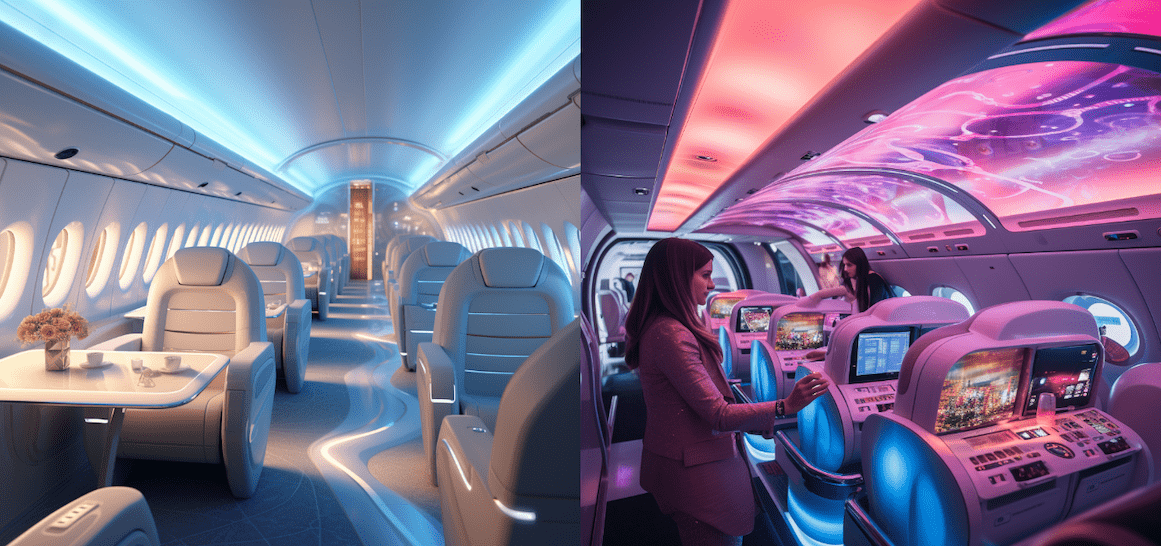- Design industry shaping loyalty programs
- Integrate easily and go live quicker
- Deliver hyper-personalized consumer experiences
Blue Rewards from Al Futtaim Group Shares Loyalty Success Stories and Evolution. Watch Podcast >
Capillary Announces 2nd Annual Captivate 2025 Summit: Transforming Loyalty Management with New AI Tech Read more >

The travel and hospitality industry is a battleground for customer loyalty, where businesses must constantly innovate to stay ahead. With travelers spoilt for choice, brands need more than just competitive pricing or seasonal promotions—they need a compelling reason for customers to keep coming back. This is where loyalty program software plays a game-changing role, turning one-time guests into lifelong patrons while significantly boosting loyalty program profitability.
A well-structured loyalty program is no longer just an add-on; it is a strategic asset that enhances customer retention in travel and hospitality and fosters long-term brand affinity. By offering frequent traveler rewards and personalized travel experiences, brands can create deeper emotional connections with their customers, leading to increased engagement and direct revenue growth. Let’s explore how some of the biggest names in travel and hospitality have leveraged loyalty software to drive sustained success.
A well-designed loyalty program is a key driver of customer retention in travel and hospitality, encouraging travelers to consistently choose the same brand. By offering incentives like discounts, free stays, or exclusive access, these programs encourage customers to return, fostering repeat business. The resulting increase in customer lifetime value significantly boosts profitability.
Example: Marriott Bonvoy exemplifies the benefits of loyalty programs in travel and hospitality. With over 150 million members worldwide, this loyalty program offers numerous benefits, including room upgrades, free nights, and exclusive experiences. The program has not only increased customer retention but has also expanded Marriott’s portfolio through acquisitions, such as Starwood Hotels, further boosting its profitability.
With so many options available, loyalty programs powered by the right loyalty software helps brands stand out by offering exclusive benefits and personalized travel experiences that attract and retain customers. This differentiation not only increases bookings but also justifies premium pricing. Explore Capillary’s robust loyalty software – Loyalty+ and up your loyalty game.
Example: Hilton Honors is a prime case of brand differentiation. Hilton’s loyalty program offers a “Price Match Guarantee,” assuring customers of the best available rate when booking directly through Hilton channels. This feature sets Hilton apart from its competitors and encourages travelers to choose Hilton for their stays.
Loyalty program members often spend more during their travels, not just on accommodations but also on ancillary services such as dining, spa treatments, and activities. These additional expenditures contribute significantly to the industry’s profitability.
Example: The airline industry is a prime example of leveraging ancillary sales. Airlines like Delta offer their loyalty program members exclusive benefits, such as priority boarding, complimentary upgrades, and access to airport lounges. These perks drive higher spending on flight upgrades and in-flight services, substantially boosting ancillary revenue.
Loyalty programs provide travel and hospitality businesses with a treasure trove of customer data. This information allows businesses to personalize marketing efforts, enhance the customer experience, and make informed decisions regarding their offerings and strategies.
Example: Accor’s “ALL – Accor Live Limitless” loyalty program collects data on customer preferences, stay history, and engagement levels. This data helps Accor tailor its marketing campaigns, target specific customer segments, and create personalized offers, leading to higher customer satisfaction and repeat business.
Boost your customer engagement efforts with Capillary’s Engage+.
Loyalty programs often encourage customers to book directly through the brand’s website or app. This not only reduces distribution costs associated with third-party booking platforms but also allows brands to build a direct relationship with customers, fostering long-term loyalty and repeat bookings.
Example: Choice Hotels’ “Choice Privileges” loyalty program offers an exclusive Member Rate for customers who book directly through their website or app. This strategy has not only decreased distribution costs but has also increased direct bookings, strengthening customer relationships and profitability.
Also, check out our fun read on Debunking Travel Myths.
The benefits of loyalty programs in travel and hospitality extend far beyond short-term perks. They serve as a catalyst for customer retention, increased spending, data-driven personalization, and operational efficiency. As seen with industry leaders like Marriott, Hilton, Delta, Accor, and Choice Hotels, a well-designed loyalty strategy not only fosters deeper guest relationships but also drives measurable loyalty program profitability.
In today’s fast-evolving landscape, where travelers expect seamless, hyper-personalized experiences, leveraging AI-powered loyalty software is the key to staying ahead. Capillary’s Loyalty+ empowers travel and hospitality enterprises with next-gen loyalty program software, harnessing AI, ML, and generative loyalty to create dynamic, real-time engagement. From predictive analytics that anticipate customer preferences to personalized reward structures that keep travelers invested, Loyalty+ helps brands turn casual guests into loyal advocates.
If you’re looking to elevate your brand with cutting-edge loyalty program software, get in touch with our experts today and discover how Capillary’s Loyalty+ can help you stand out in this dynamic market.
Loyalty programs help travel and hospitality brands drive customer retention, increase loyalty program profitability, encourage direct bookings, and offer personalized travel experiences, enhancing overall guest satisfaction.
Loyalty program software enables brands to create targeted rewards, analyze customer behavior, and personalize offers, ensuring travelers stay engaged and keep returning.
Frequent traveler rewards like priority check-ins, room upgrades, and exclusive discounts incentivize repeat bookings and foster long-term loyalty in the travel and hospitality sector.
AI-driven loyalty software personalizes rewards, predicts customer preferences, and automates engagement strategies, making loyalty programs more effective and profitable.
By integrating loyalty program software, businesses can optimize reward structures, encourage higher ancillary spending, and use data-driven insights to maximize loyalty program profitability.

December 7, 2024 | 4 Min Read
A well-structured loyalty program enhances customer retentio

October 30, 2023 | 4 Min Read
AIRA is Capillary's AI powered research assistant which has

December 22, 2024 | 4 Min Read
AIRA is Capillary's AI powered research assistant which has